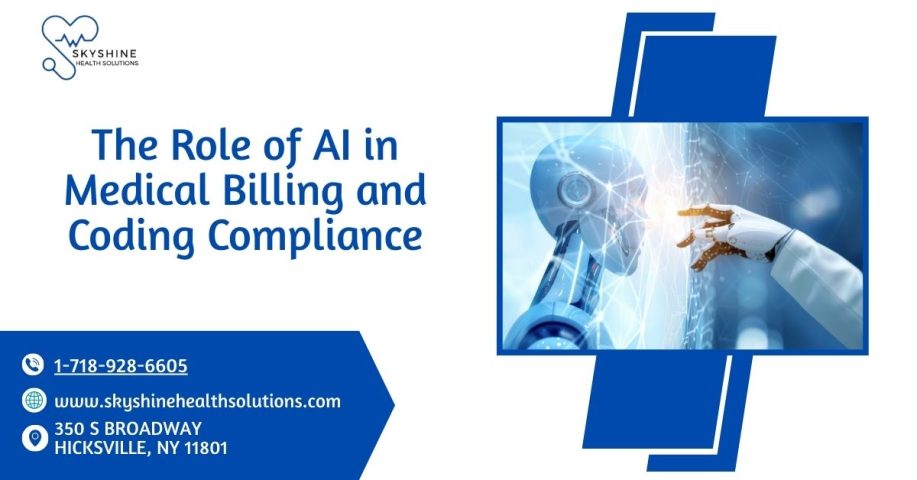
Top 5 Common HIPAA Violations and How to Avoid Them
July 14, 2025
What’s New in ICD-10 Updates for 2025
July 28, 2025In the ever-evolving landscape of healthcare, artificial intelligence (AI) is transforming medical billing and coding, driving efficiency, accuracy, and compliance. As healthcare providers navigate complex regulations like HIPAA and the transition to ICD-11, AI-powered tools are becoming indispensable. This blog explores how AI is reshaping medical billing and coding compliance in 2025, offering practical insights for healthcare professionals.

Why AI Matters in Medical Billing and Coding
Medical billing and coding are critical to the healthcare revenue cycle, but they’re also prone to errors. Incorrect ICD or CPT codes can lead to claim denials, delayed reimbursements, or even legal issues under HIPAA. AI addresses these challenges by automating processes, reducing human error, and ensuring compliance with regulatory standards.
1. Enhancing Coding Accuracy
AI-driven tools leverage natural language processing (NLP) and machine learning to analyze clinical documentation and assign accurate ICD-11 and CPT codes. .By automating code selection, AI reduces the risk of claim denials, which cost the healthcare industry billions annually. A 2024 study estimated that 15% of claims are denied due to coding errors, but AI can cut this rate significantly.
2. Ensuring HIPAA Compliance
HIPAA compliance is non-negotiable in medical billing, as mishandling patient data can result in hefty fines. AI tools enhance compliance for example, AI-powered platforms can flag non-compliant practices, like unencrypted emails containing PHI (Protected Health Information), helping providers avoid costly penalties.
3. Streamlining Revenue Cycle Management (RCM)
AI optimizes the entire revenue cycle by automating repetitive tasks and providing real-time insights. In 2025, practices using AI-driven RCM tools report up to 30% faster claim approvals compared to manual processes.
Real-World Applications of AI in Billing and Coding
Hospitals and clinics are already reaping the benefits of AI. For instance:
-
-
Large hospital systems use AI to cross-check thousands of claims daily, ensuring compliance with Medicare and Medicaid regulations.
-
Small practices rely on AI-powered billing software to reduce administrative burdens, allowing staff to focus on patient care.
-
Coding platforms like 3M’s 360 Encompass integrate AI to streamline ICD-11 coding and improve accuracy.
-
Challenges and Considerations
While AI offers immense potential, it’s not without challenges:
-
-
Initial costs: Implementing AI tools can be expensive, though long-term savings often justify the investment.
-
Training needs: Staff must be trained to use AI systems effectively.
-
Data quality: AI relies on accurate input data; poor documentation can undermine its effectiveness.
-
To overcome these hurdles, providers should partner with reputable AI vendors and invest in staff training to maximize ROI.
The Future of AI in Medical Billing
As AI technology advances, its role in medical billing and coding will only grow. In 2025, we can expect:
-
-
Greater integration with EHRs: Seamless data sharing between electronic health records and billing systems.
-
Enhanced predictive models: AI will predict payer behavior, optimizing claim submissions.
-
Broader adoption of ICD-11: AI will simplify the transition to ICD-11, ensuring compliance across practices.
-
AI is revolutionizing medical billing and coding compliance, offering unmatched accuracy, efficiency, and HIPAA adherence. As the healthcare industry evolves, adopting AI-driven tools is no longer optional—it’s essential for staying competitive. Whether you’re a small practice or a large hospital, integrating AI into your billing processes can streamline operations, boost revenue, and ensure compliance in 2025 and beyond.

Learn more on Different Healthcare Billing Solutions
Have question related to Medical Billing? Check or FAQs for this.
Learn from Reviews what people say about us.















